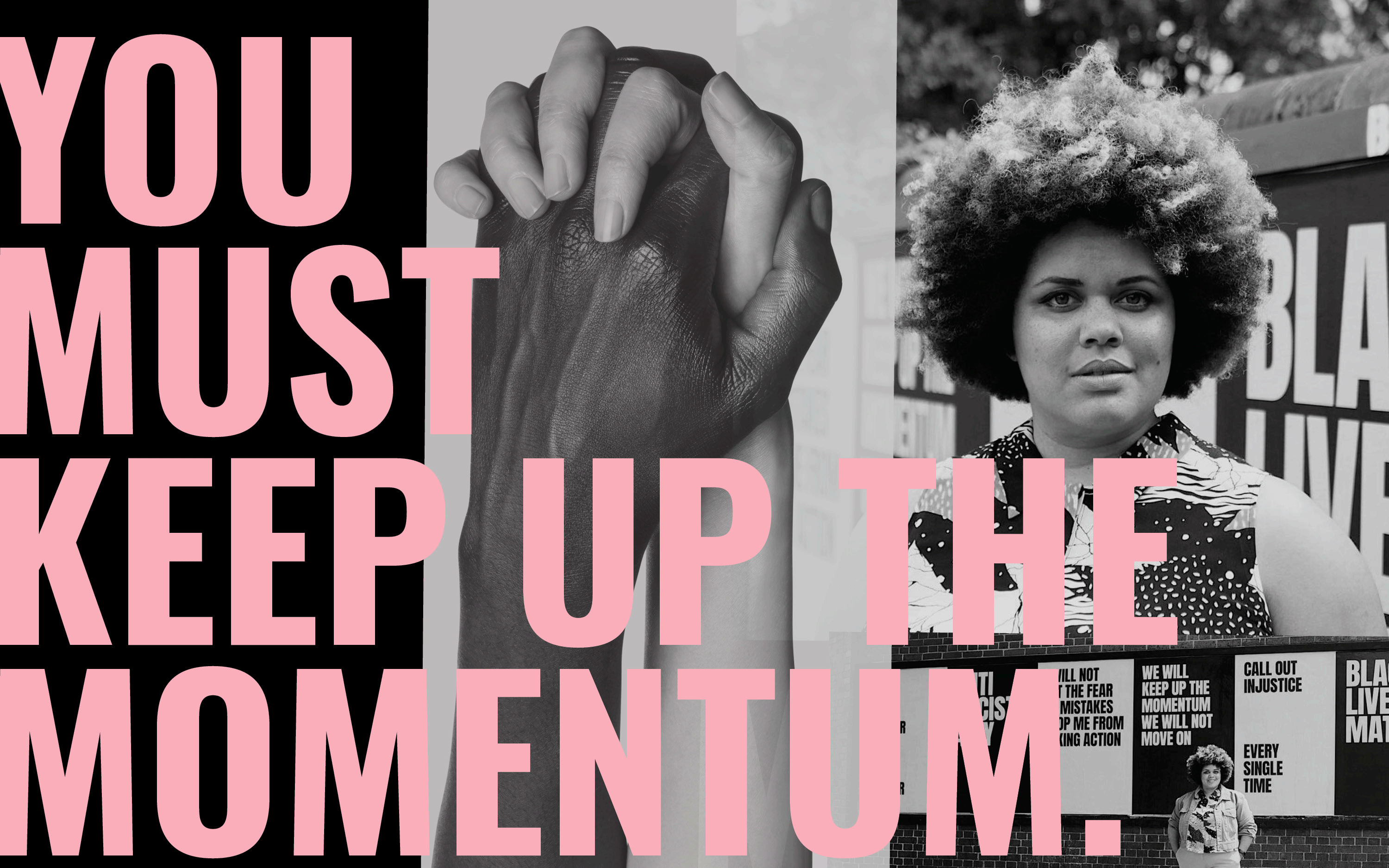"How to be an anti-racist ally for the long term," by Sophie Williams
The Black Lives Matter movement saw non-Black people take action against racism in a way never seen before. Sophie Williams (@officialmillennialblack) explains why it's crucial to keep up the long term allyship...

Celebrity news, beauty, fashion advice, and fascinating features, delivered straight to your inbox!
You are now subscribed
Your newsletter sign-up was successful
The Black Lives Matter movement saw non-Black people take action against racism in a way never seen before. Sophie Williams (@officialmillennialblack) explains why it's crucial to keep up the long term allyship...
It’s Black History Month and with this year's theme being “Actions not Words”, people across the nation are looking for ways to take action and keep building anti-racism and allyship into their daily lives.
Action is progress, but too much of the momentum is reactive and when the news cycle stops, too often so does the movement.
7 ways to be an anti-racist ally for the longterm, by Sophie Williams
1. Being "not racist" and "anti-racist" are very different
Not being racist is not the same as being anti-racist. Let me explain. Not being racist is a passive state, it doesn’t require action. Being anti-racist, on the other hand, is an active state. Being anti-racist means speaking out against injustices every single time we see, or hear, them, even when it doesn’t feel easy.
Keep up the momentum of this movement, and making the change we need to see, will need more people to stepping up from simply not being racist, into being actively anti-racist.
2. Keep on engaging
Following a whole load of new Instagram accounts, as a way to diversify your feed, or to access free, helpful tools and resources is great. But now you have to keep on engaging.
The people behind the accounts are still doing the work. They're still researching, making and sharing valuable content. Then as interest drops and people stay following without interacting, the message algorithms receive is this is no longer engaging to people. So the message becomes buried, making it harder and harder for people to find.
Celebrity news, beauty, fashion advice, and fascinating features, delivered straight to your inbox!
Turn on post notifications and stay engaged with people who are sharing resources helping you on your anti-racism journey.
3. Stay feeling uncomfortable
The anti-racism conversation touches on all things we’re told not to talk about. Sex, money, politics - everything we’re told is taboo and private is touched by race. We need to teach ourselves to get comfortable talking about it all. We need to accept the discomfort of difficult conversations.
It's vital to remember that however uncomfortable we may feel, it will never be as uncomfortable as a knee pressing down on our necks.
4. Think offline
Posting and sharing information can be useful, and has the potential to reach a wide range of people. But, the majority of anti-racism work needs to happen offline, in our daily lives. We need to find ways to speak out and drive change at work, in our communities and even in our own homes. Remember anti-racist allyship is what you do, not what you believe, so get active in speak up, and speaking out for what you believe.
5. Carry on planning
All too often anti-racism work is reactive - it takes something awful - to galvanize people into action. Look for ways to be proactive, not just reactive. Make future plans, form habits and look for regular ways to integrate anti-racism into your everyday life, in order to make sure your allyship will continue into the future, not just the present.
6. Connect with others
Keeping up the momentum in anything is easiest when you have a community around you. Find accountability buddies, people who are on the same path of learning as you, and book in regular sessions. Share resources, ideas and plans to keep each other motivated and on track with anti-racism work.
7. Anti-racism isn’t a self-improvement exercise
Anti-racist allyship is not about making yourself feel better, or about you becoming a "better person". Anti-racist allyship is about improving the lived experiences of people from marginalised racial groups. The way things are structured at the moment was never meant to work for everyone, equally. Don’t feel satisfied you’ve learned all there is to learn, or done all you can. We're building on a legacy of civil rights activists, and there's always more we can all push towards, every day.
* Anti-Racist Ally: An Introduction to Action and Activism by Sophie Williams (HQ, £6.99 paperback) is available to buy now.